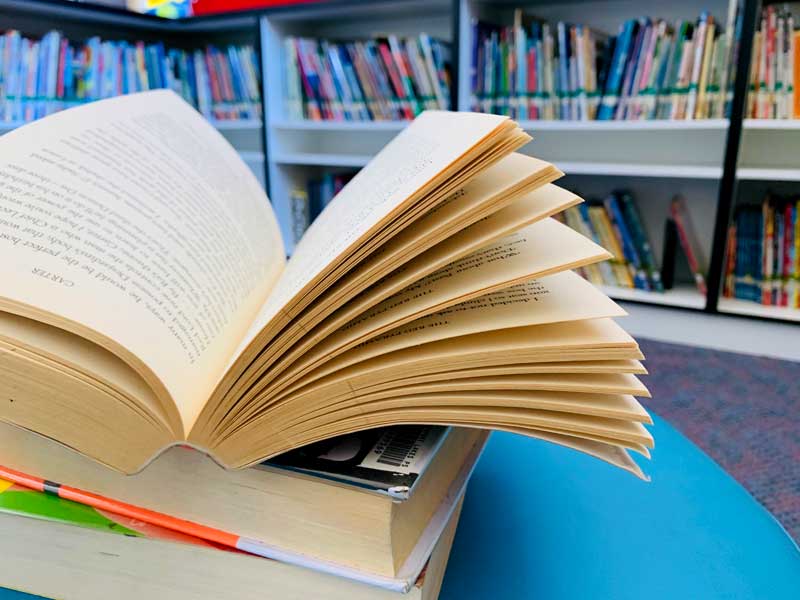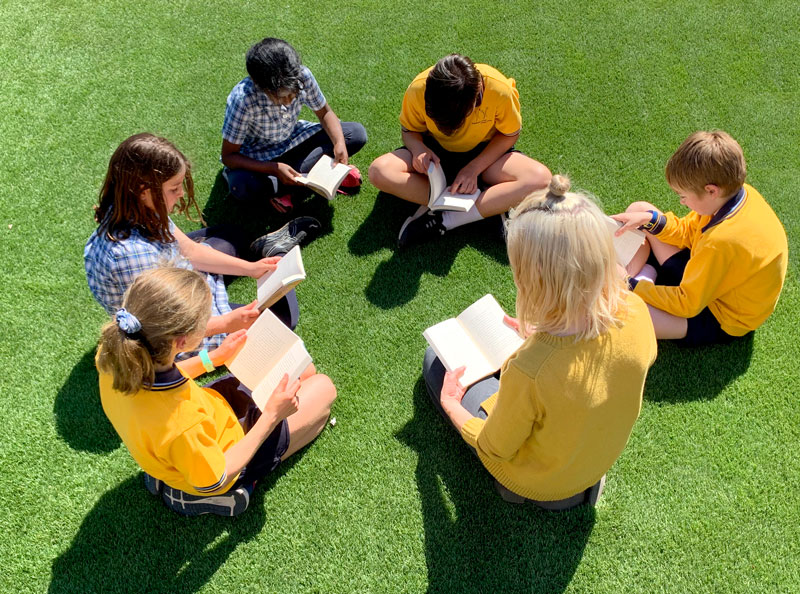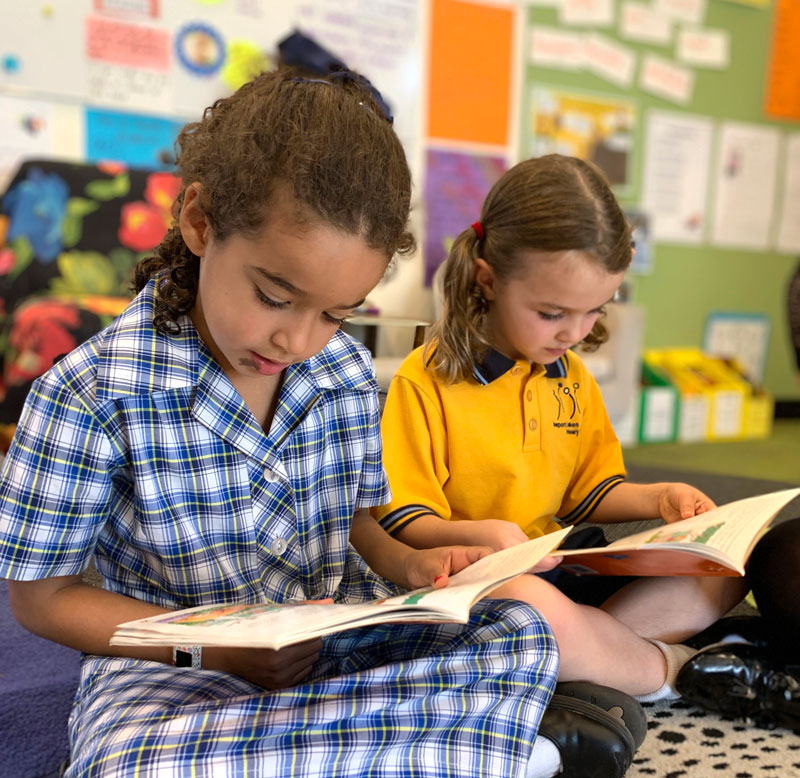



At Newport Lakes Primary School we pride ourselves on our excellent achievements in literacy. We work in teams to plan our Literacy sessions and then work together to assess the achievements of our students. This constant focus on the learning that is happening in our school allows us to refine our lessons and differentiate the curriculum to meet the needs of everyone. Importance is placed on all staff working together to keep abreast of best practice and current research in the teaching of literacy. Our focus on excellence is reflected in our students’ continual improvement in their literacy outcomes.
We have a consistent structure for the implementation of our Literacy lessons, guided by the Newport Lakes Primary School instructional model. We plan for one hour of reading and one hour of writing per day. The reading mini lesson has a whole class focus that addresses the needs of the class.The teacher will model effective reading strategies and then students move onto an independent reading task to help them practise and refine the strategy. The teacher then works either one on one with a student conducting a reading conference and discussing individual reading goals, or works with a small group of students with similar learning needs.
In writing, the teachers follow the same structure with a whole class focus and students working either independently on a writing task or in small groups of students with similar learning needs.One on one writing conferences allow the students to discuss their work and set individual writing goals with the teacher.The teachers model their writing and think aloud as they show the students what successful writers do.Mentor authors are also used to show students how real authors work and the strong links between reading and writing.
All sessions have a learning focus that is explicitly discussed with the students and success criteria that allow the students to understand how they can measure their success.This constant reflection allows the student to monitor his/her own learning and take responsibility for learning with the guidance of the teacher.

